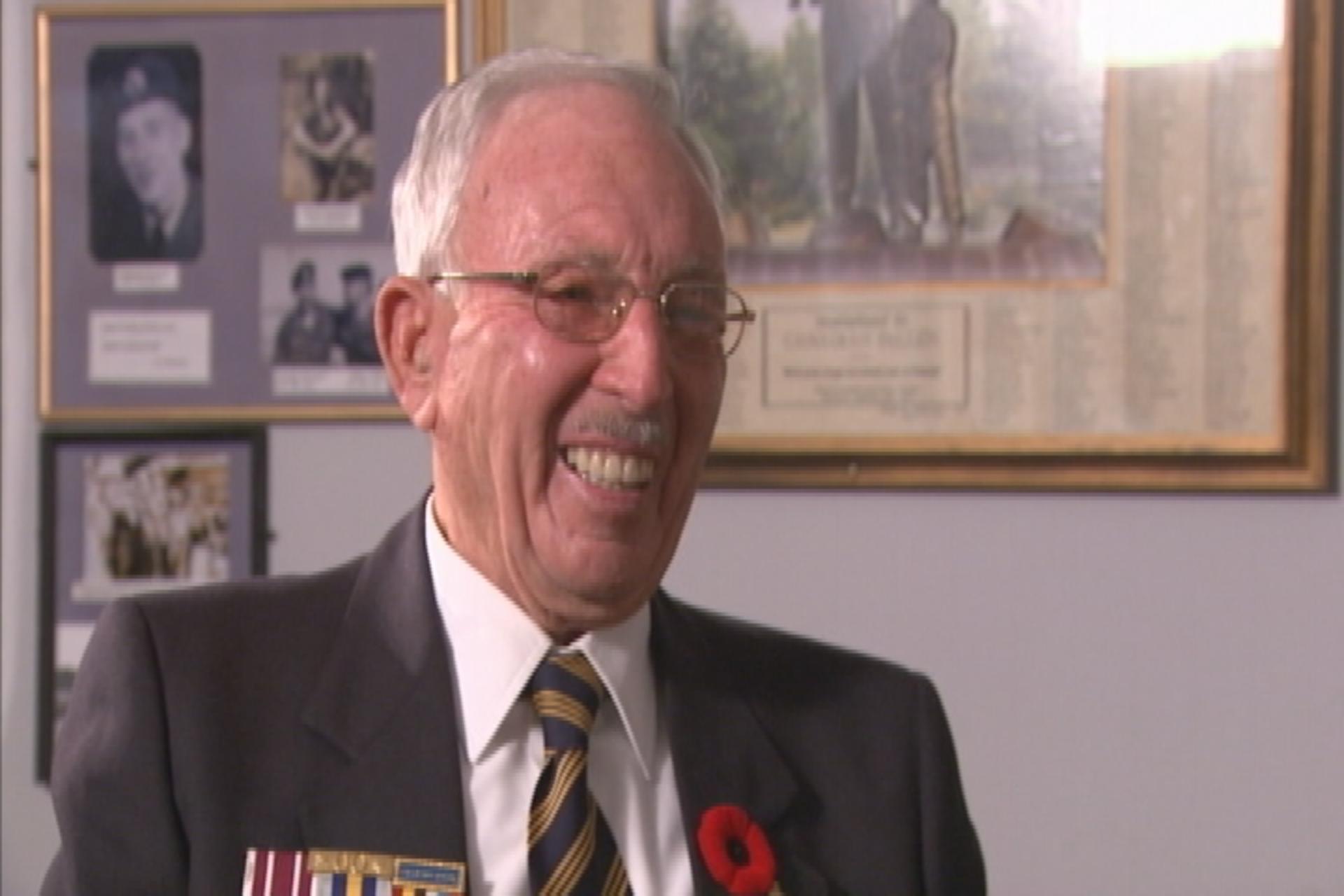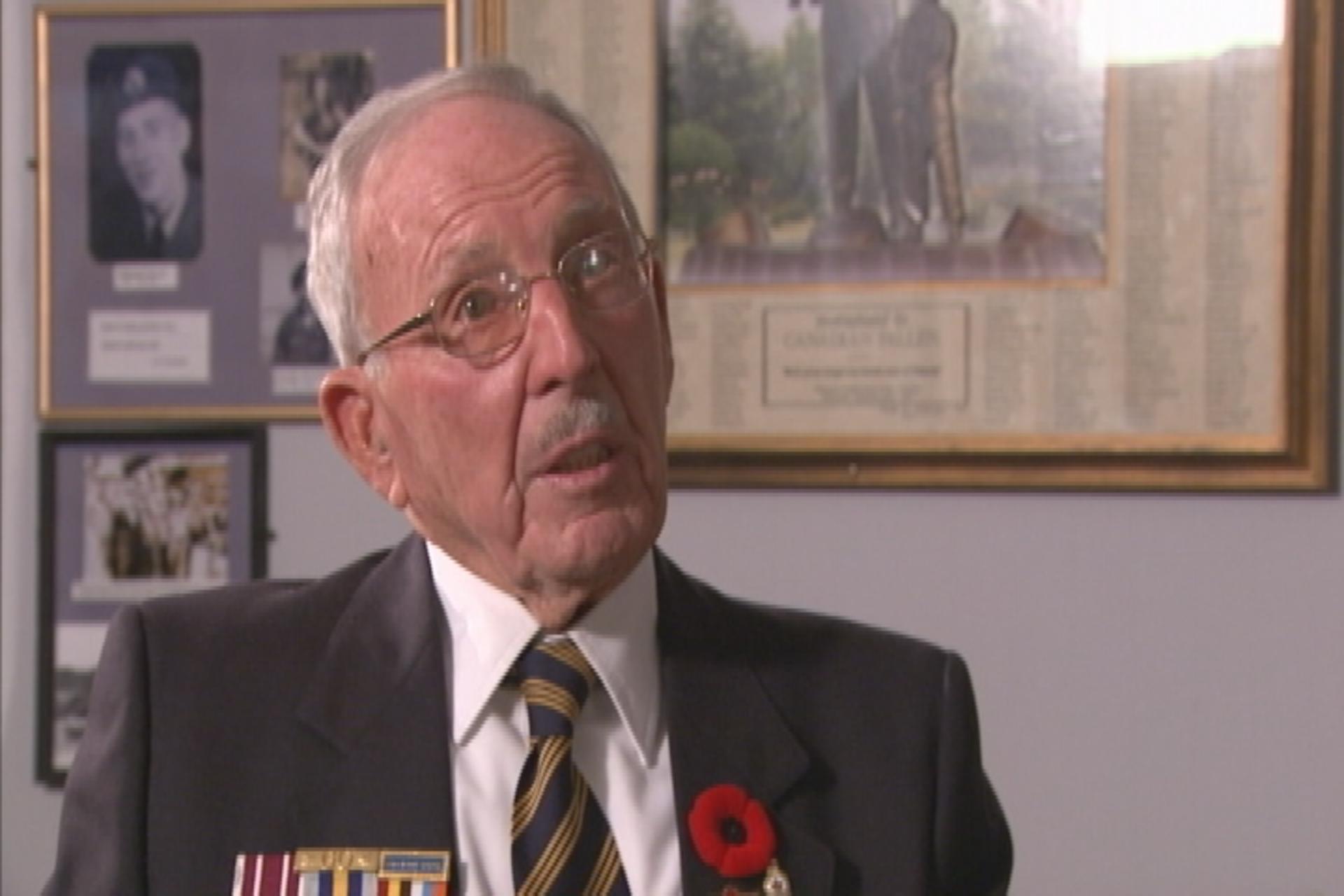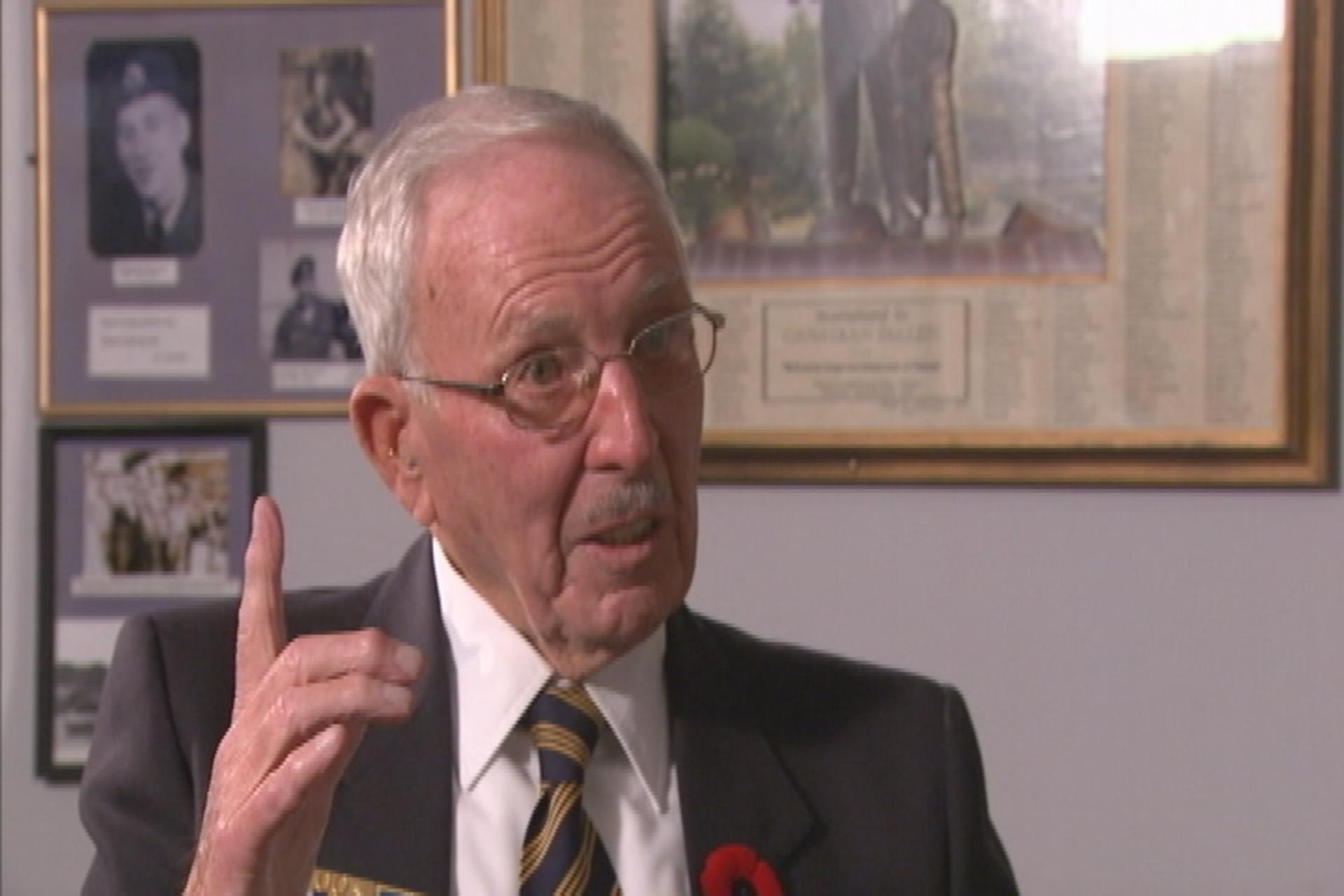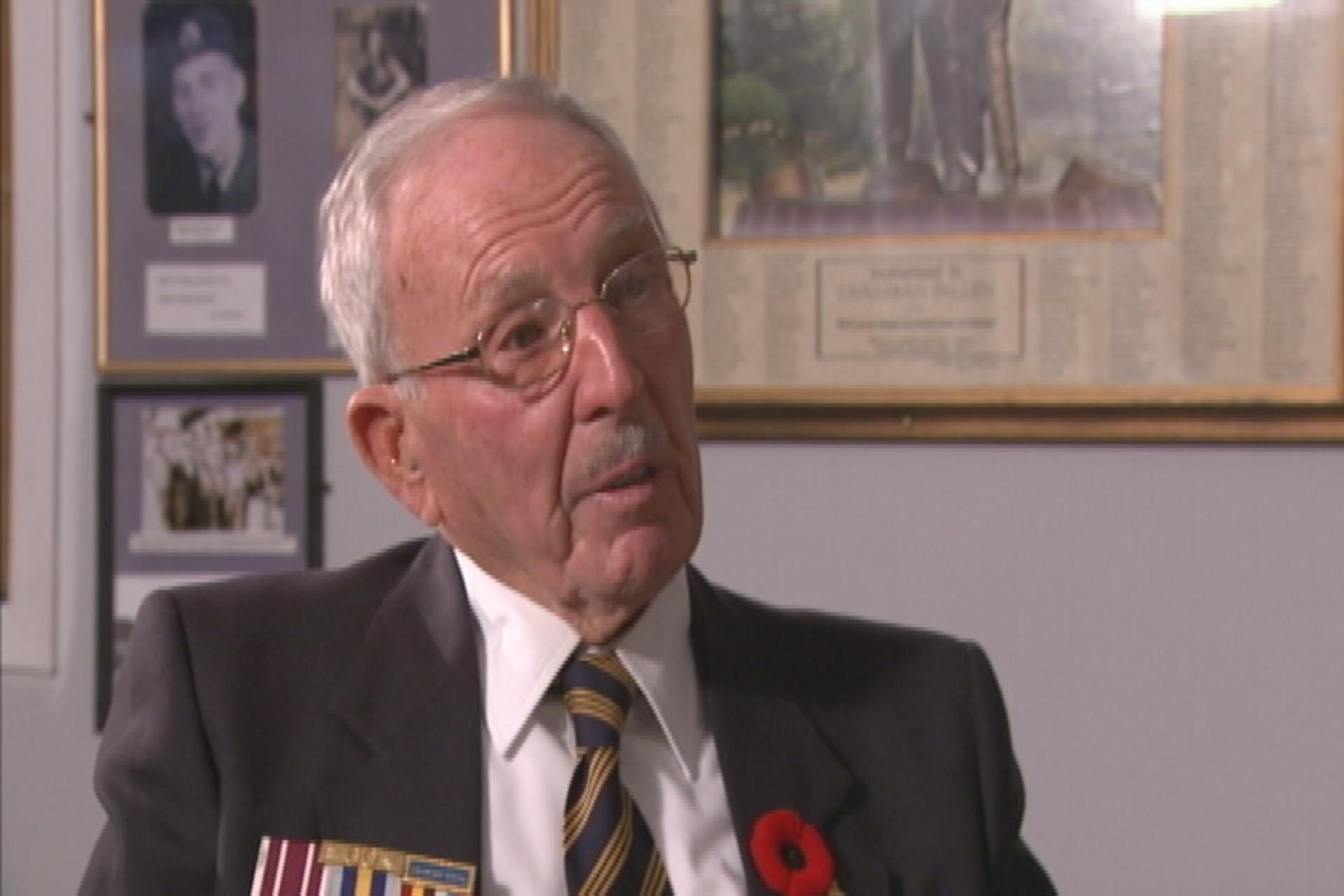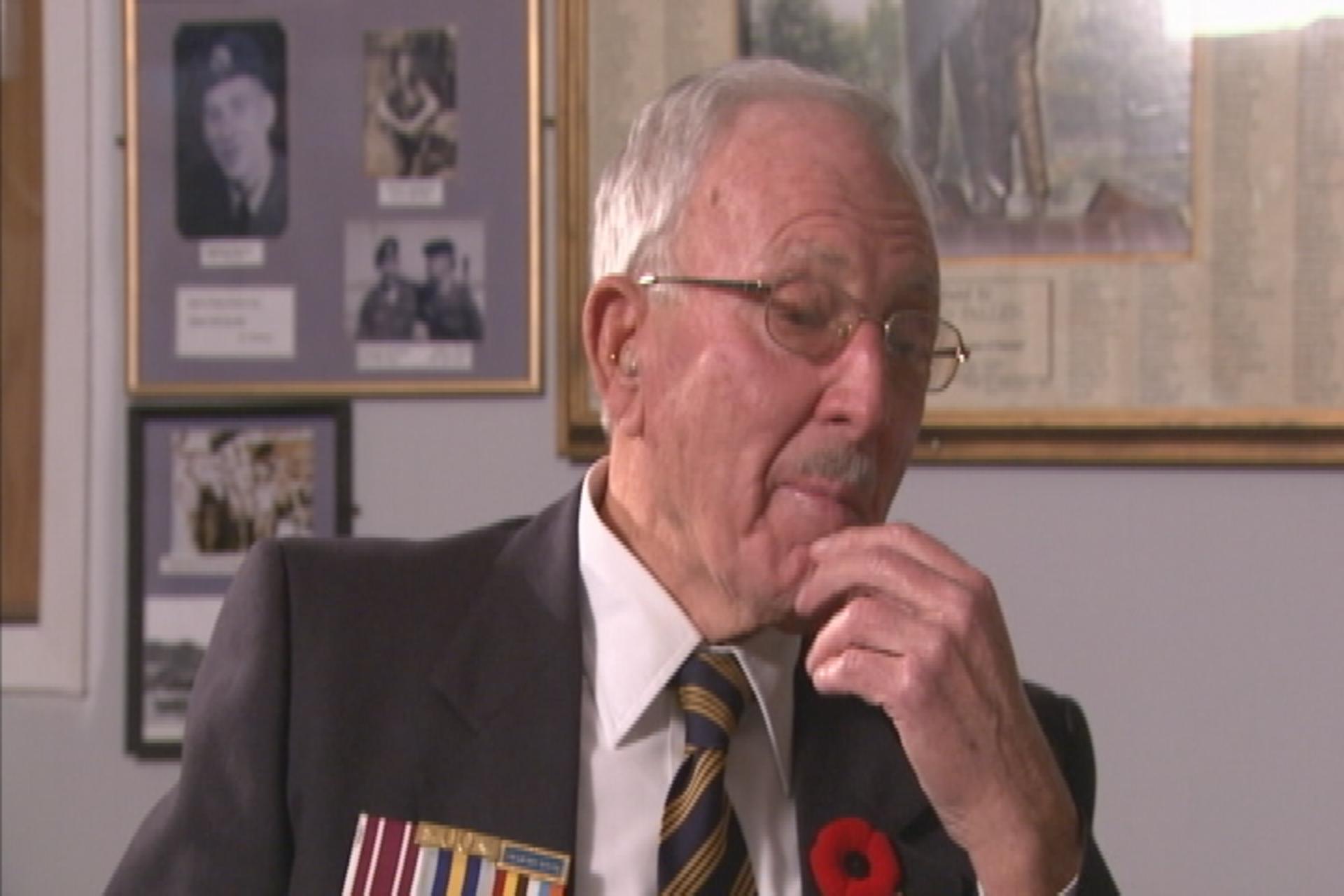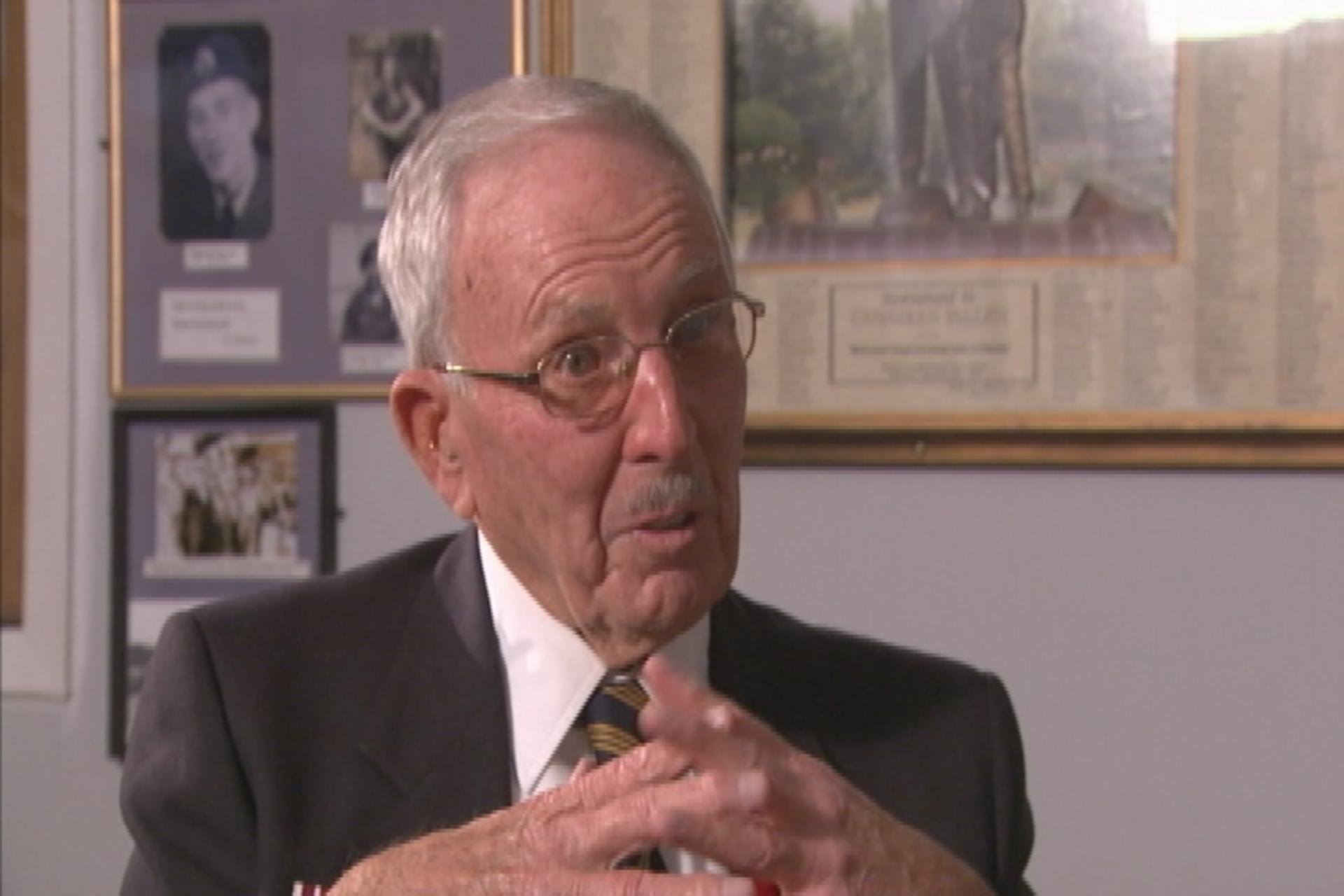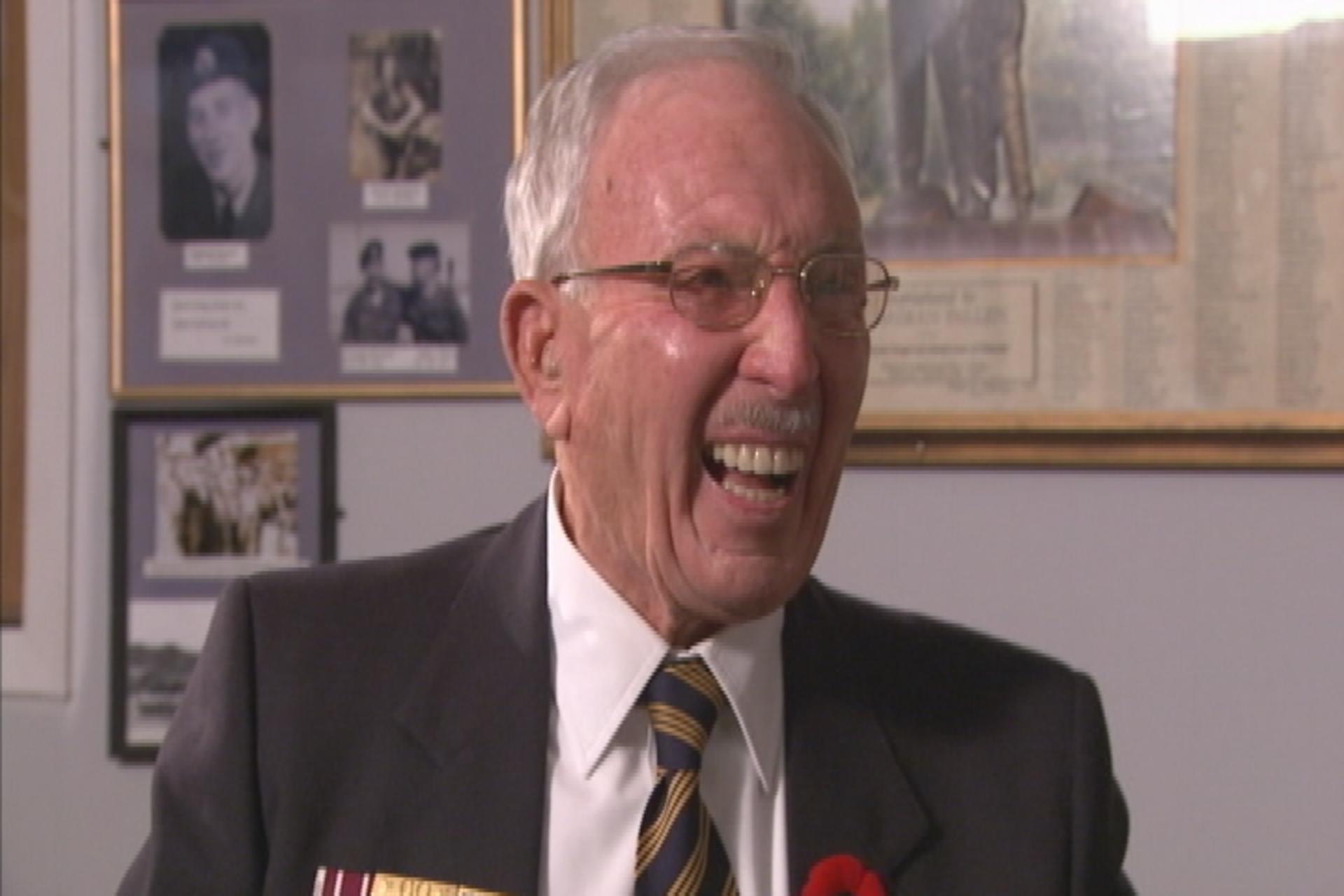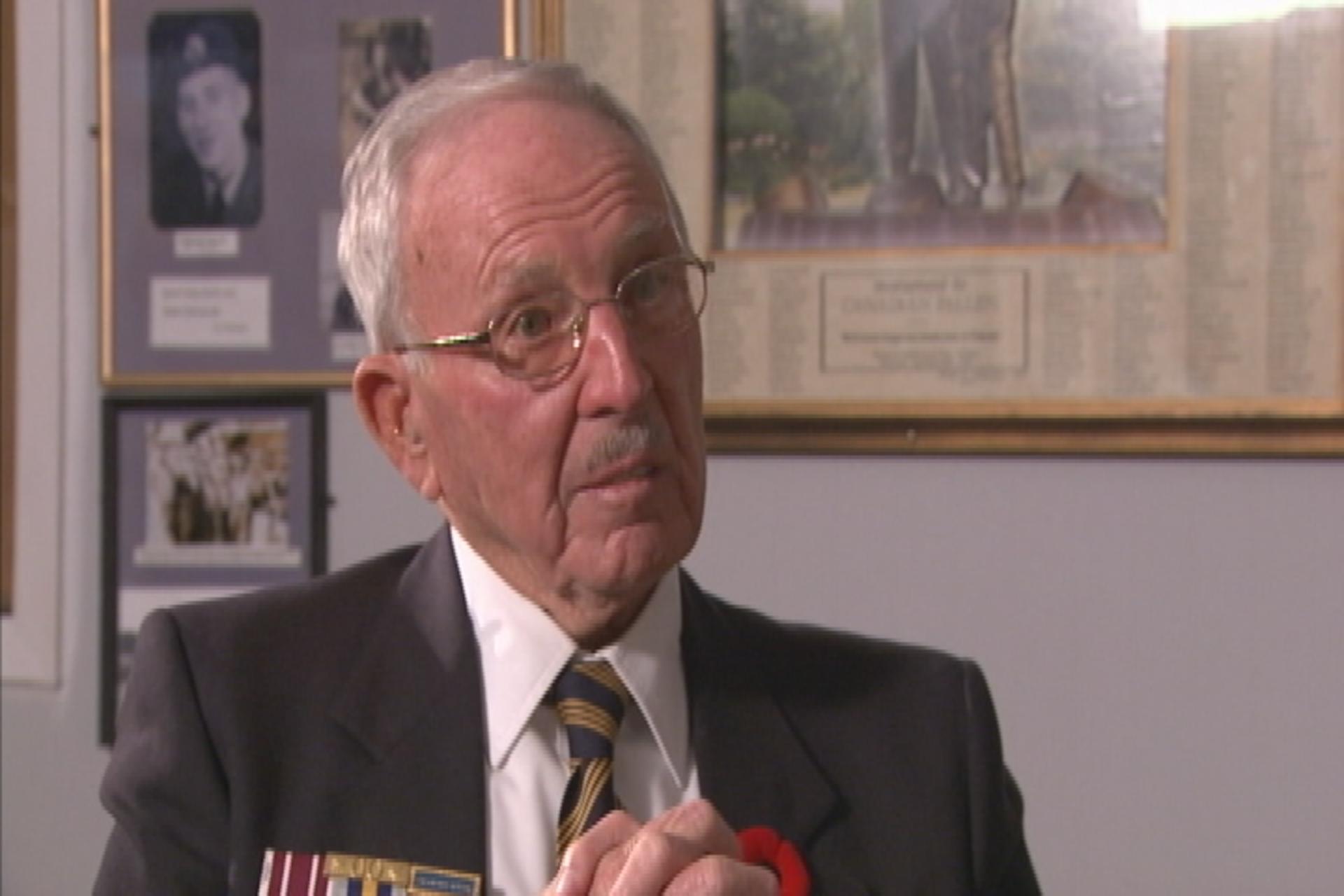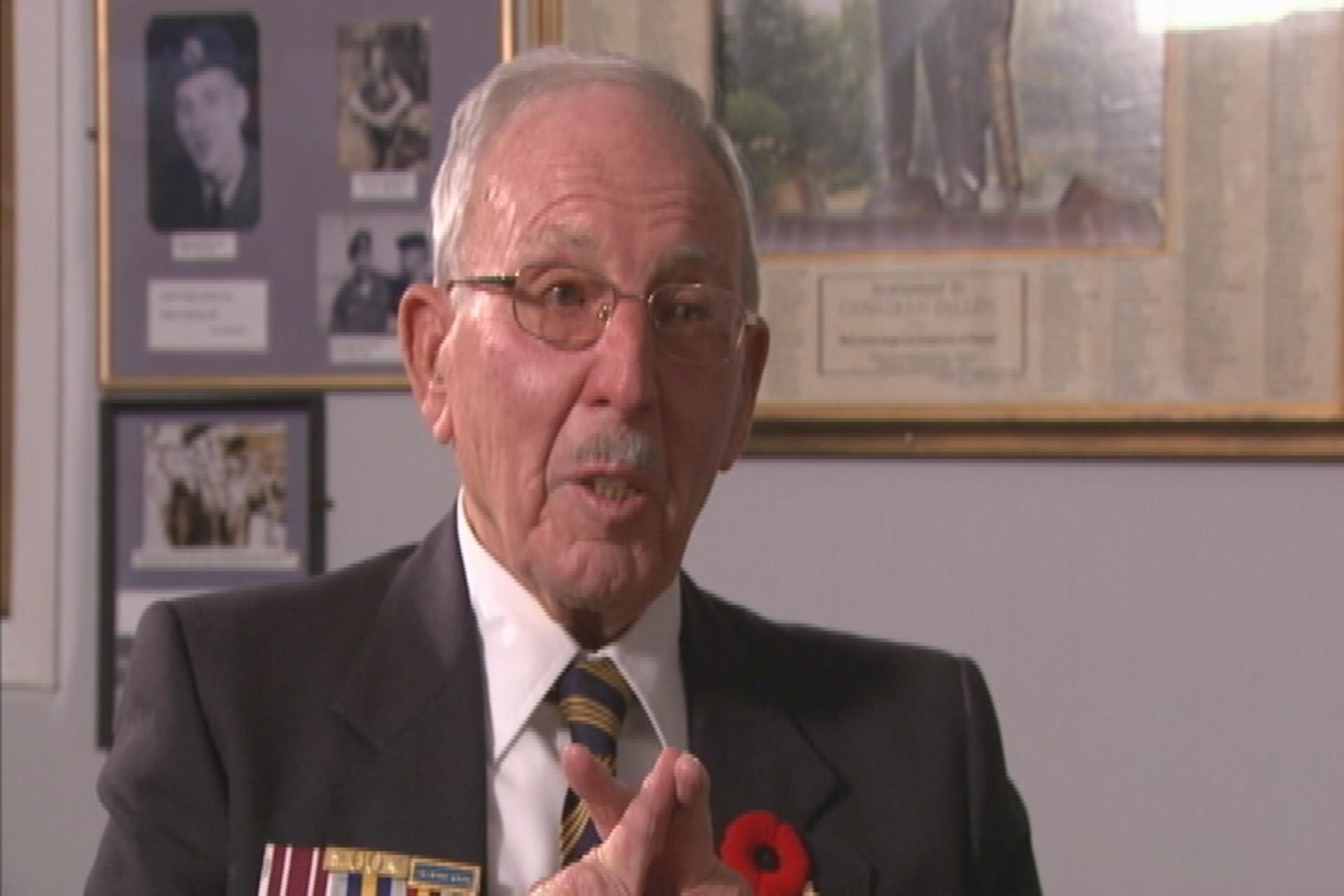Guns were Constantly Moving
Heroes Remember
Guns were Constantly Moving
Transcript
With the artillery now, there’s not much, shall we say, hand to
hand combat. It wasn’t a war, particularly like that but it was
a very hilly country and the high spots, the tips of the
mountains, shall we say, everybody wanted to be there because
they could see everything, see. So you could look out there in
the daytime if you looked through your glasses and that and you
could see nobody but the China men were there. And you’d see
the American aircraft coming down and dropping these napalm
bombs, jellied gasoline on them, you know. And then during dusk then
you’d probably have targets figured out during the day and then they'd
fire about dusk. Probably two days you wouldn’t
fire a round at all but the gun, shall we say, a quarter mile away from you
you’d be going, it’s all according to, I don’t know,
it‘s probably hard to explain but if they wanted all the
guns to fire, they’d just command all of them. But if they only
used the shell from one gun, shall we say, to get on the target.
This gun here would be moving, all of them would be moving like that
but this one would only fire. Now when they wanted a shell
to get ranged in on his target, he’d say, “Fire by order,” or “Brigade fire.”
Well then every gun then would be following
these rules and regulations, shall we say, and then they would
call, “Brigade fire,” well then the whole seventy two guns in
the brigade then would, boom! Then they’d say if you wanted
five rounds of gunfire, well every gun then would fire five rounds.
Well that would be, there’s seventy two guns in the brigade
five rounds each, well that’s four hundred rounds.
By the time you got them well you were stone deaf then, anyhow.
Now if you heard a shell he was gone overhead, don’t’ worry
about him, he was gone. It was the one that you didn’t hear,
you’d listen for that or a shell was coming in or…
The Chinaman, they never had very much, shall we say, in heavy artillery.
They operated in a sort of a single man, a two-man
group like and they had these bazookas, you know.
They'd drop down a shell and then they could move then anytime.
Description
Mr. Mercer explains the strategies involved in setting targets.
Leslie Mercer
Mr. Leslie Mercer was born June 24, 1927 in St. John’s, Newfoundland. Being a child of the Great Depression, he went to work at the dockyard at a very young age. He was too young to volunteer for the Second World War but when the Korean War broke out he was quick to join with the Special Force. He became part of the Royal Canadian Horse Artillery as a bombardier. After spending a year in Korea, Mr. Mercer returned to St. John’s, Newfoundland, married and raised a family.
Meta Data
- Medium:
- Video
- Owner:
- Veterans Affairs Canada
- Recorded:
- November 10, 2015
- Duration:
- 2:55
- Person Interviewed:
- Leslie Mercer
- War, Conflict or Mission:
- Korean War
- Location/Theatre:
- Korea
- Battle/Campaign:
- Korea
- Branch:
- Army
- Units/Ship:
- Royal Canadian Horse Artillery
- Rank:
- Bombardier
Related Videos
- Date modified:



